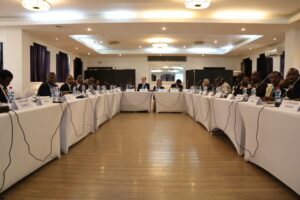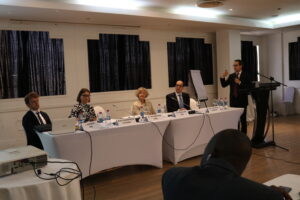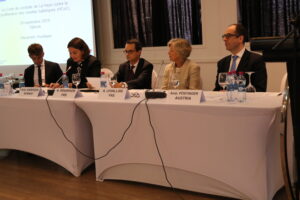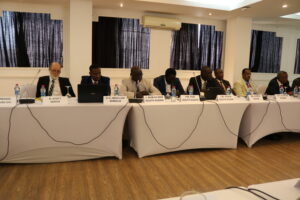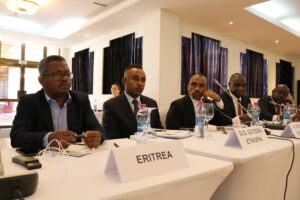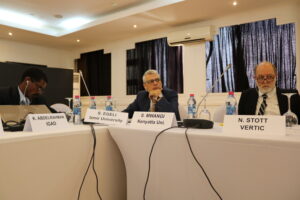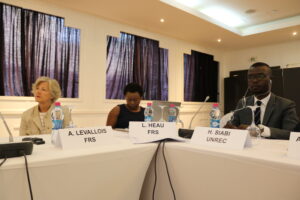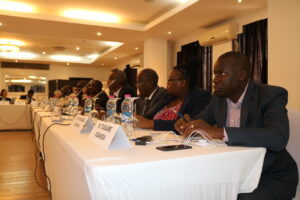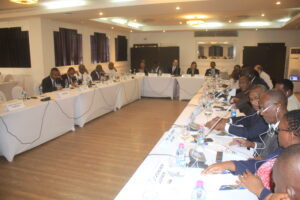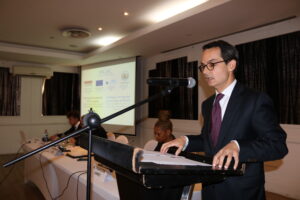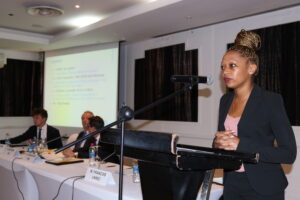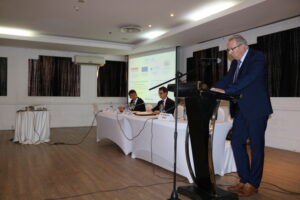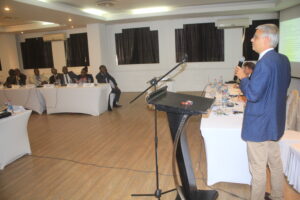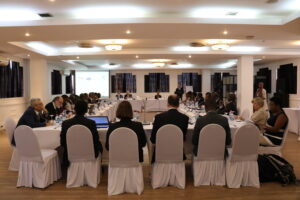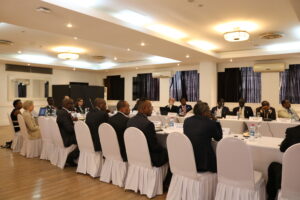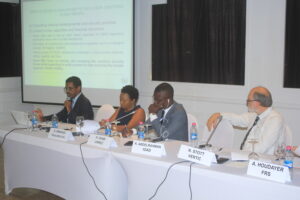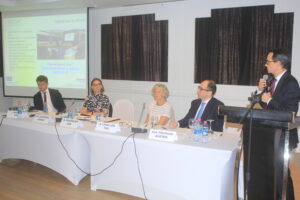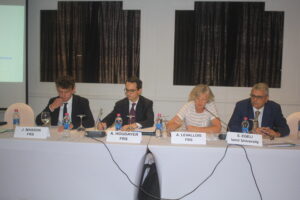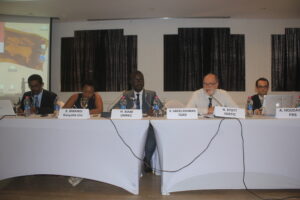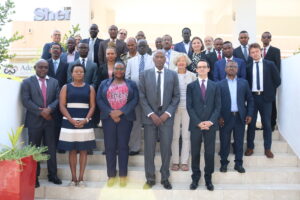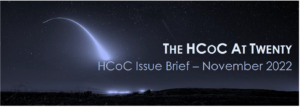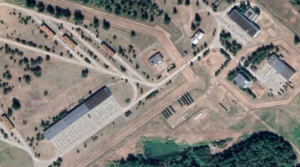Regional Seminar on HCoC in Djibouti
26 September 2019
On 26 September 2019, FRS organised a regional outreach seminar in Djibouti entitled « Dealing with missile proliferation: one side of the non-proliferation and disarmament regime » with the support of IGAD and UNREC.
AGENDA
WELCOMING REMARKS
- Mr Alexandre HOUDAYER, Secretary General, FRS
- Mr Patrick GEYSEN, Head of the Political, Press and Information Section, Delegation of the European Union to the Republic of Djibouti
I/ CONTRIBUTION OF THE UNREC IN THE IMPLEMENTATION OF PERTINENT NON-PROLIFERATION INSTRUMENTS BY AFRICAN STATES
- Ms Maïté FRANCOIS, Judicial Affairs Specialist, UNREC
II/ THE HCoC: KEY INSTRUMENT TO PROMOTE CONFIDENCE IN THE FIELD OF WMD DELIVERY VEHICULES
MODERATOR:
- Ms Agnès LEVALLOIS, Senior Research Fellow, FRS
PRESENTERS:
- Amb. Kjersti Ertresvaag ANDERSEN, Ambassador of Norway to Austria, HCoC Chair, Ministry of Foreign Affairs, Norway
- Mr Alexandre HOUDAYER, Secretary General, FRS
- Amb. Georg PÖSTINGER, Ambassador of Austria to Saudi Arabia, representative of the HCOC Immediate Central Contact (ICC), Ministry of Foreign Affairs, Austria
KEY ISSUES:
- Contribution of the Code to international security
- Being a Subscribing State: commitments and benefits
- Day-to-day implementation of the Code
III/ THE PROLIFERATION OF MISSILES, A REGIONAL THREAT?
MODERATOR:
- Mr Alexandre HOUDAYER, Secretary General, FRS
PRESENTERS:
- Ms Agnès LEVALLOIS, Senior Research Fellow, FRS
- Dr Sitki EGELI, Assistant Professor, Izmir University of Economics
- Mr Jean MASSON, Research Fellow, FRS
KEY ISSUES:
- Missile proliferation in the Gulf of Aden: what dynamics?
- Trafficking and missiles proliferation risks in the Horn of Africa
- The role of transparency instruments in the case of missiles
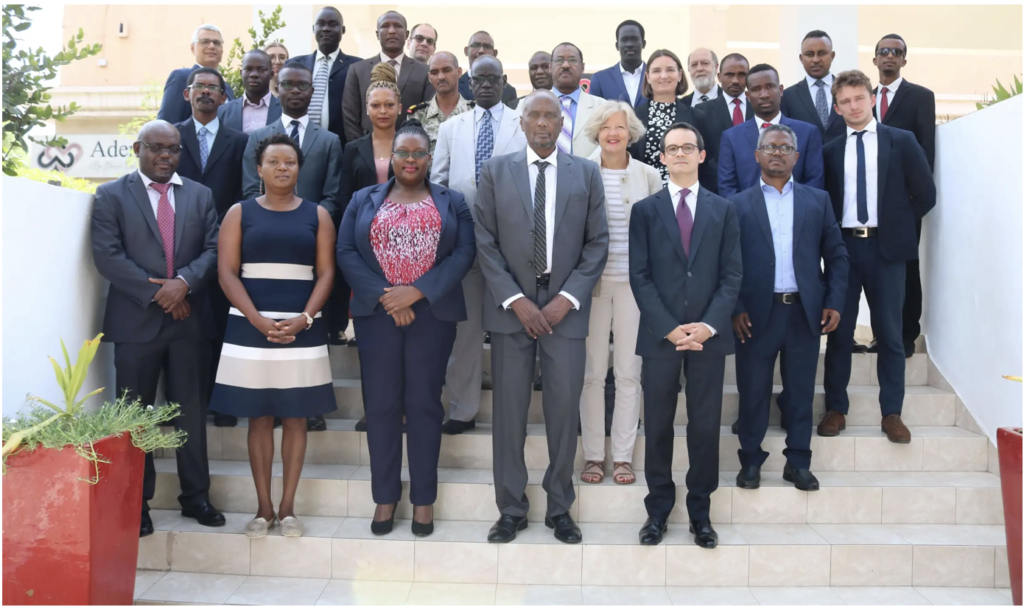
IV/ INSERTING THE HCoC IN REGIONAL NON-PROLIFERATION & DISARMAMENT PRIORITIES
MODERATOR:
- Mr Hervé-Jude SIABI, Program Manager, UNREC
PRESENTERS:
- Mr Noël STOTT, Senior Researcher, Verification Research, Training and Information Centre (VERTIC)
- Mr Khalid ABDELRAHMAN, Head of Security Institutions Capacity Building, Security Sector Program, Intergovernmental Authority on Development (IGAD)
- Dr Susan MWANGI, Professor, Kenyatta University
KEY ISSUES:
- Eastern African priorities on non-proliferation and disarmament
- Regional efforts to enhance non-proliferation norms: from SALW to WMD
- Combining non-proliferation with peace and development in the Horn of Africa
PERSPECTIVES & CONCLUSION
